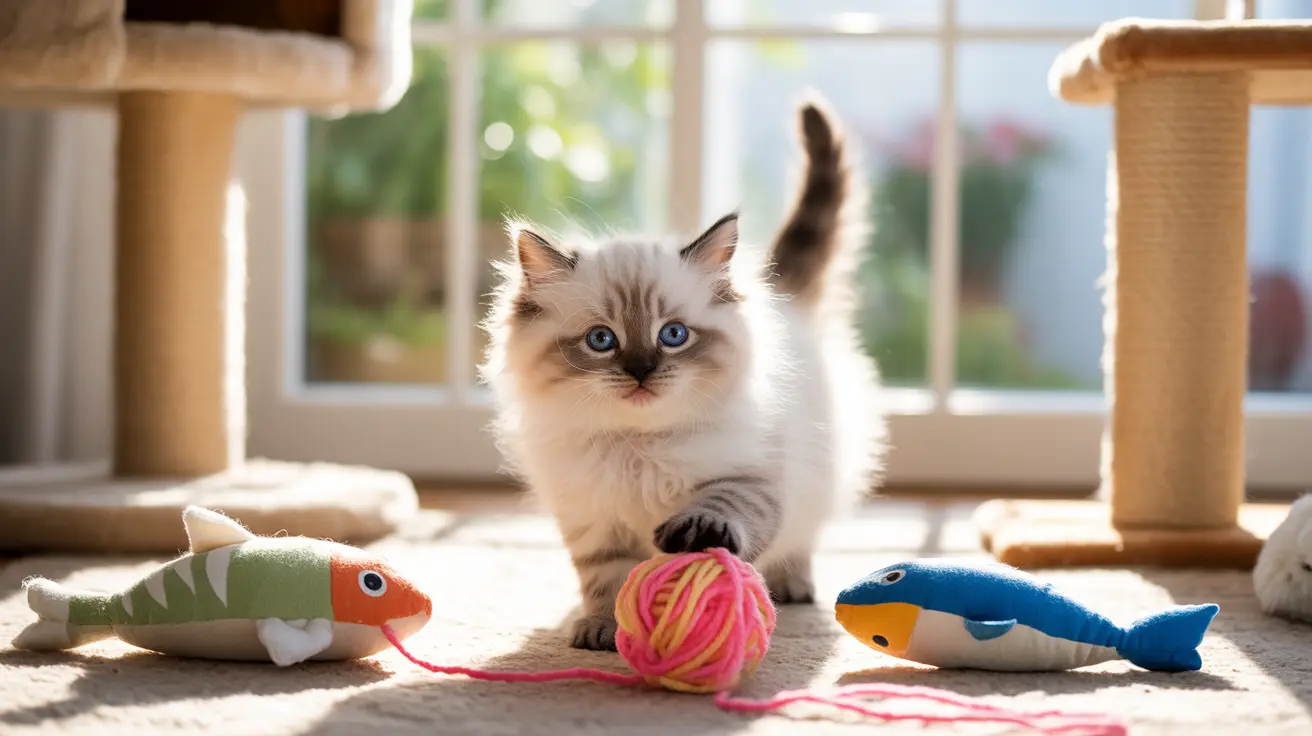Introduction
Bringing a new kitten home is an exciting adventure, but ensuring they grow into healthy kittens requires careful planning and dedicated care. From proper nutrition to environmental enrichment, the first few months of a kitten's life are crucial for their long-term wellbeing. This comprehensive guide will walk you through everything you need to know about raising a happy, healthy kitten.
Whether you're a first-time cat parent or expanding your feline family, understanding the fundamentals of kitten care will help you provide the best possible start for your new companion. Let's explore the essential aspects of raising healthy kittens, from nutrition and veterinary care to socialization and environmental enrichment.
Essential Nutrition for Growing Kittens
Proper nutrition forms the foundation of healthy kittens. During their first year, kittens need approximately three times more calories than adult cats to support their rapid growth and development. Choose high-quality kitten-specific food that meets AAFCO standards for growth and development.
Feed your kitten multiple small meals throughout the day, gradually reducing frequency as they age. For kittens under 8 weeks, aim for 4-6 meals daily. Between 8-16 weeks, transition to 3-4 meals, and by 6 months, settle into 2-3 daily feedings.
Creating a Safe and Enriching Environment
A well-designed living space is crucial for raising healthy kittens. Set up multiple stations throughout your home for essential resources, including feeding areas, water bowls, and litter boxes. Ensure each location is easily accessible and away from high-traffic areas.
Include various climbing structures, scratching posts, and interactive toys to promote physical activity and natural behaviors. Create cozy hiding spots and elevated perches where your kitten can observe their surroundings safely.
Veterinary Care and Health Monitoring
Regular veterinary care is essential for maintaining healthy kittens. Schedule your kitten's first vet visit within the first week of bringing them home. Your veterinarian will establish a vaccination schedule, typically beginning at 6-8 weeks of age.
Monitor your kitten's weight gain and development closely. Healthy kittens should gain 10-15 grams daily during their first few months. Keep track of eating habits, elimination patterns, and energy levels to quickly identify potential health concerns.
Socialization and Behavioral Development
Early socialization plays a vital role in raising well-adjusted, healthy kittens. Expose your kitten to various positive experiences during their critical socialization period (2-7 weeks). This includes gentle handling, meeting different people, and encountering various household sounds and situations.
Dedicate time each day to interactive play sessions, which help develop coordination, confidence, and proper social skills. Use appropriate toys to redirect natural hunting behaviors and prevent unwanted aggression.
Frequently Asked Questions
How often should I feed my kitten, and what type of food is best for their growth stage?
Feed kittens under 8 weeks 4-6 times daily using kitten-specific wet or dry food that meets AAFCO standards. Gradually reduce feeding frequency as they age, always ensuring the food is formulated for growth and development.
Why is it important to gradually transition my kitten to new foods, and how long should this process take?
Gradual food transitions prevent digestive upset. Take 7-10 days to switch foods, slowly increasing the proportion of new food while decreasing the old food. This allows their digestive system to adjust properly.
What are the key signs of a healthy kitten, and how can I monitor their growth and development?
Healthy kittens should have bright eyes, clean ears, a glossy coat, and steady weight gain (10-15g daily). Monitor their activity levels, appetite, and elimination habits. Regular weigh-ins help track proper development.
How can I ensure my kitten gets enough mental and physical stimulation at home?
Provide various toys, climbing structures, and scratching posts. Engage in interactive play sessions several times daily. Create exploration opportunities with puzzle feeders and rotating toys to prevent boredom.
What are the essential veterinary care steps for my kitten during their first year of life?
Schedule initial vet visits for vaccinations starting at 6-8 weeks, followed by boosters as recommended. Include regular deworming, flea prevention, and spaying/neutering when age-appropriate. Maintain routine check-ups to monitor growth and development.
Conclusion
Raising healthy kittens requires attention to multiple aspects of care, from proper nutrition and veterinary attention to environmental enrichment and socialization. By following these guidelines and maintaining consistent care routines, you'll help your kitten develop into a happy, well-adjusted adult cat.
Remember that every kitten is unique, so stay attentive to your pet's individual needs and consult with your veterinarian whenever you have concerns about their health or development. With proper care and attention, you'll create a strong foundation for a lifetime of health and happiness with your feline companion.






